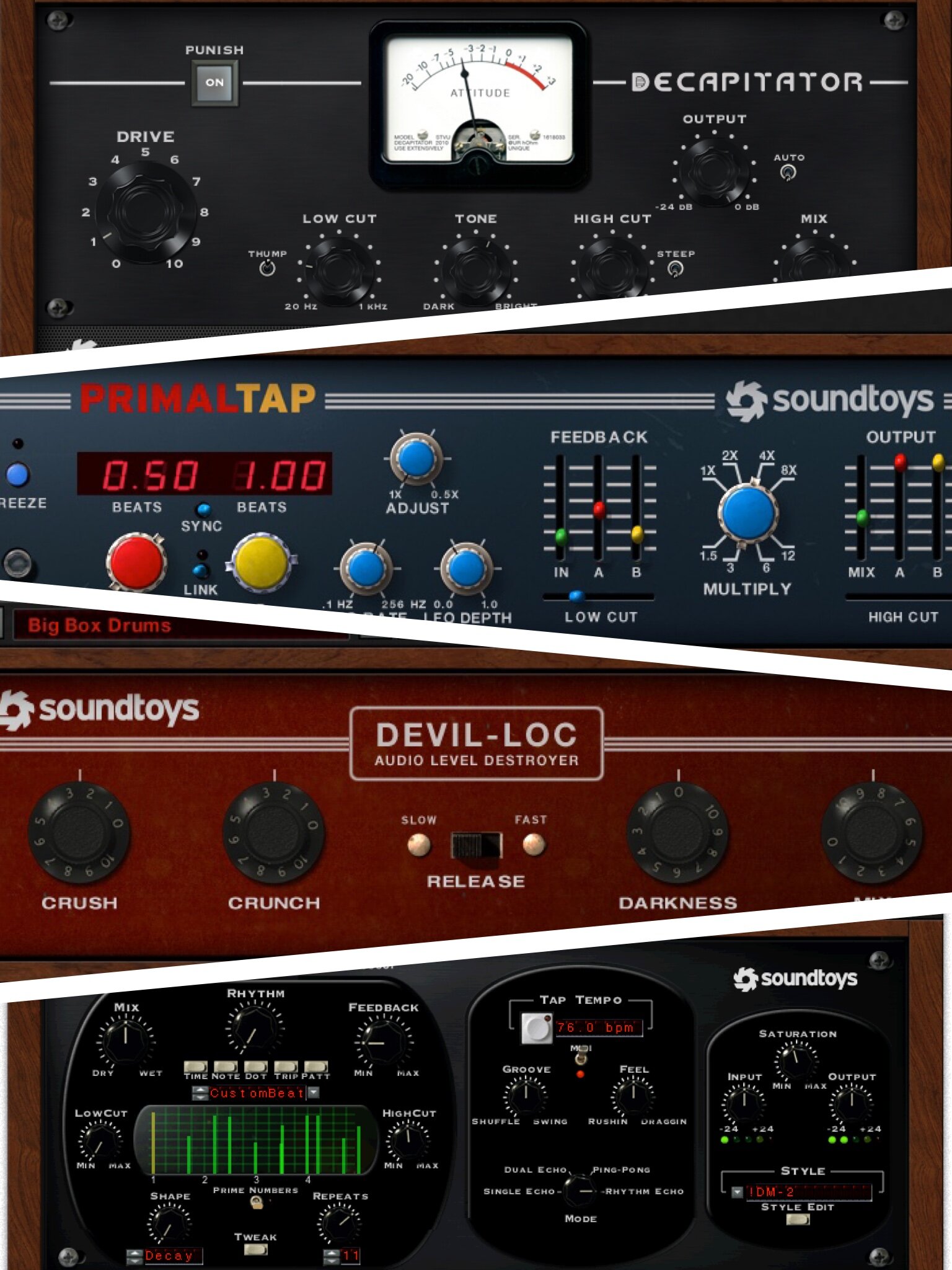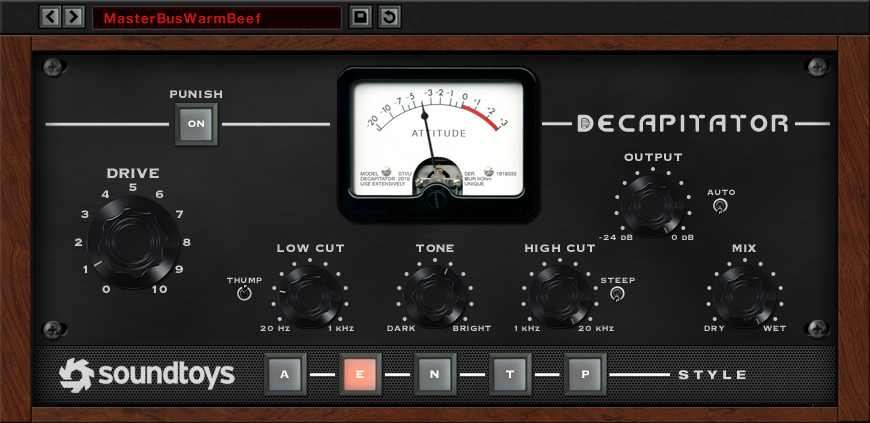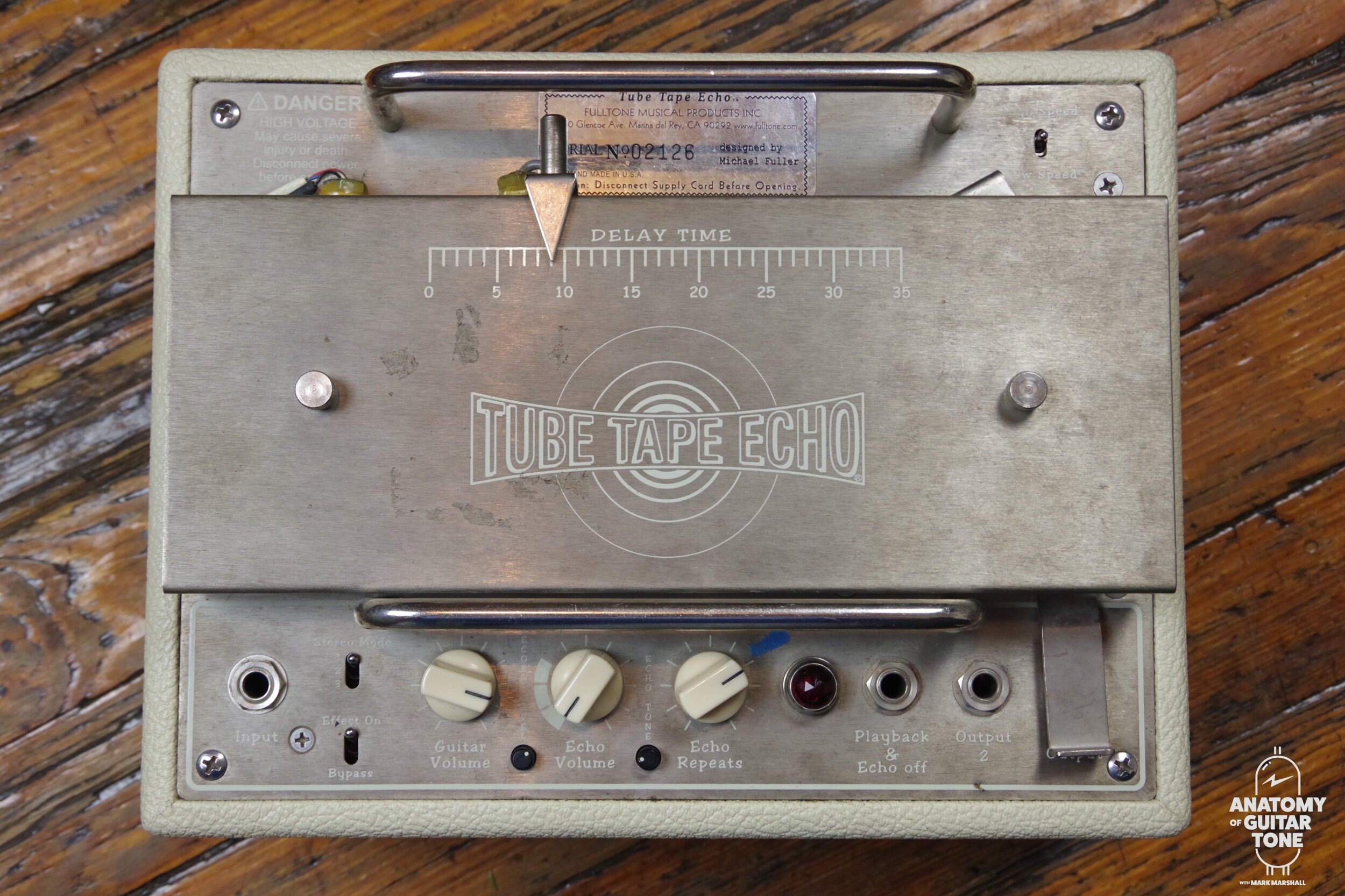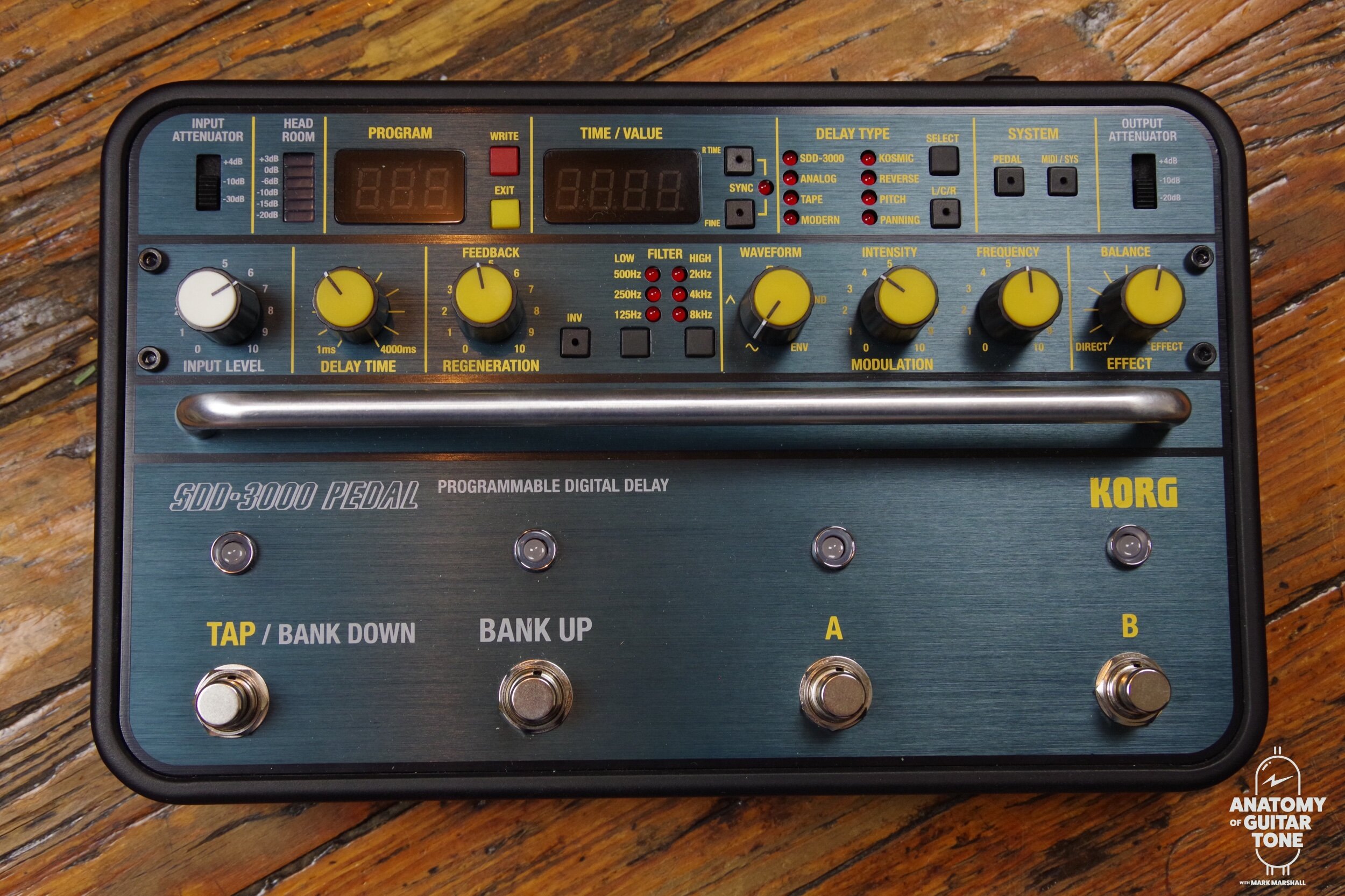Guitar Production: Soundtoys Plugins
Sound Toys plugins have been a staple for many recording engineers and mixers for quite some time. But for some reason, I just didn't end up trying them until recently.
I dropped by my friend and film composer Gene Back's studio. We were discussing plugins, and I was mentioning how I was generally dissatisfied with delay plugins. I just haven't bonded with any.
I'll admit that I'm an analog delay nut. Although some companies have made emulations of old delays, I've been unsatisfied.
Gene suggested I try Echo Boy from Soundtoys. I had heard of EchoBoy before but was jaded using delay plugins. After some not so gentle judging from my friend, I tried EchoBoy.
Well, I sure am glad I did. It turns out, I not only like EchoBoy, but I also love a bunch of the other offerings from Soundtoys. The PrimalTap delay has become a favorite of mine as well as Devil-Loc, Radiator, and Decapitator, among others.
I find myself using Soundtoys plugins on every session now. They are very creative plugins.
I use Decapitator on a variety of tracks, including unlikely sources like acoustic guitars. It can help shape the tone of an otherwise boring acoustic guitar sound. I might not even add much drive from Decapitator. It's more about shaping the overtones in a way that might be impossible or tedious for an EQ.
The Radiator plugin can be fantastic for adding a little saturation to both electric and acoustic guitar sounds. Saturation can come in different forms. There are times where I may want saturation from tape. Other times I may want it from a tube line mixer. Different flavors.
Radiator has become of my go-to saturation devices alongside the Culture Vulture, Studer A800, and Reels.
But back to delay: EchoBoy embodies the personality and behavior of various old delays better than other plugins, in my opinion. I own a wide variety of delay units for guitar. I have Fulltone Tube Tape Echo, a digital Korg SDD-3000, an Electra Bucket Brigade delay, and a Strymon El Capistan.
I've gotten pretty used to the operational quirks of these units. Soundtoys has done a great job of inserting the essence of each of the classic style delays into EchoBoy. But EchoBoy has an original sound. I haven't felt like it was a replacement for any of my echos. It's an excellent companion.
I will admit that I'm a real stickler about first impressions when it comes to gear. I'm not the sort of person who will tie in a piece of hardware or a plugin and tweak for hours. I will swap out gear more then I will tweak endlessly.
I don't mean to imply I don't twiddle some knobs. I do, but if a plugin isn't inspiring me, I move on. I find Soundtoys plugins to inspire. They sound good on insertion. Even if I need to tweak, the sound begins flattering.
Every tool in the shed
Studio owners turn into gear hoarders. With plugins, things can be even worse because the isn't a space limit to how many plugins you can own.
I've been on sessions where engineers had the choice of 20 compressors but didn't know the ins and outs of many.
“I can’t stress enough how important it is to know your gear, including plugins! ”
I can't stress enough how important it is to know your gear, including plugins! Curate your collection and dig into their possibilities.
For plugins, there are about 5-6 compressors that I use regularly. There are about 5 EQ's; four reverbs I lean, and three delays I use frequently.
I've spent time with each of these plugins to understand what sonic textures they bring. When I'm looking for saturation, I want to be able to imagine the sound first and then scroll through my memory of what plugin gets that sound. It's not random.
EchoBoy time settings
One cool feature about EchoBoy is the ability to tweak the feel of the delay repeats. Soundtoys gave us the ability to adjust if the delays are more swung or straight. They also gave us the option to make the delays feel later (dragging) or rushed. Both Groove and Feel are editable by a knob so you can find the sweet spot.
“The layout of Soundtoys plugins makes sense. I can always find what I need without scratching my head.”
The layout of Soundtoys plugins makes sense. I can always find what I need without scratching my head.
For example, there has been one delay plugin with a tone I like. But, every time I open it, my eyes freak out. It's too complicated to use in the heat of battle. I feel like I'm fighting with it. For me, this issue overrides the sound quality, and I don't use it.
But, I don't have that experience with EchobBoy. The sound matches the functionality.
Tremolo
Soundtoys also make one of the only tremolo plugins I like. Along with being an aficionado (a more delicate way of saying snob) about the delay, I happen to be one with tremolo. For me, it's hard to acknowledge a tremolo that doesn't have tubes in it except for the Fulltone Supa Trem, which I will use as an insert or effects send from Logic.
I could go on about my favorite eras of tremolo, but I'm guessing you want to stay awake. So, let me get to the point. I like the Soundtoys Tremolaror. It doesn't sound lifeless and dull like a lot of plugin tremolos.
Devil-Lok
Devil-Lok is an extreme limiter with overdrive/distortion capabilities, Which can destroy your signal in fun ways. It's aggressive. So if you're mixing a delicate finger-picked acoustic guitar lullaby, Devil-Loc isn't going to be your thang. However, if you're looking for a way to deconstruct your guitar sound completely, Devil-Loc can cause un-expected surprises.
I have had experiences where the string noise in-between notes got amplified in a way that it become a part of the rhythm of the song. It's about as subtle as a bullhorn in a library. But, if someone is reading Kerouac out loud through the bullhorn, I'll listen. Remember when libraries weren't Wikipedia?
PrimalTap
The Primetime delay is an early digital delay that came out in 1979. As you would guess, it has a very distinctive sound. Because of the available technology at the time, it had a limitation on how long the delay could be.
Lexicon engineers figured out they could multiply the delay time by degrading the sample rate which lengthens the delay time. But it also caused the repeats to sound more lo-fi.
This lo-fi character is desirable by many musicians, producers, and engineers these days. It's lo-fi in a way other delays aren't.
But there is more quirkiness to the Primetime. There was a freeze option that could sample and repeat a sniper of music. While the sample and hold are active, you can mess around with the multiplier as well as the onboard VCO that could modulate the Primetime.
“The moral of the story is you can get weird and twist your guitar into becoming something entirely different. ”
The moral of the story is you can get weird and twist your guitar into becoming something entirely different.
You can play the Soundtoys version of the Primetime called PrimalTap like an instrument. I use a source to grab a loop using the freeze button and get creative. Remember, you can automate many of the controls. I like to record the PrimalTap performances, though. You never know when the unpredictable may happen.
You can record the performance by selecting the output of the channel strip and send to the input of a new track. I will often take it a step further and send the output to my Apollo virtual channel, where I will usually further process. I'm treating my interaction with the PrimalTap in a very analog way.
The advantage is now I have a new track with a PrimalTap performance on it that I can cut up and move around.
Don't get too comfortable using just one plugin for the guitar. Audition a few and listen to the different characters each one adds. Auditioning sound is a big part of developing a great guitar tone. Even if I'm going for a simple slapback echo, I may test a few real delays and plugins.















